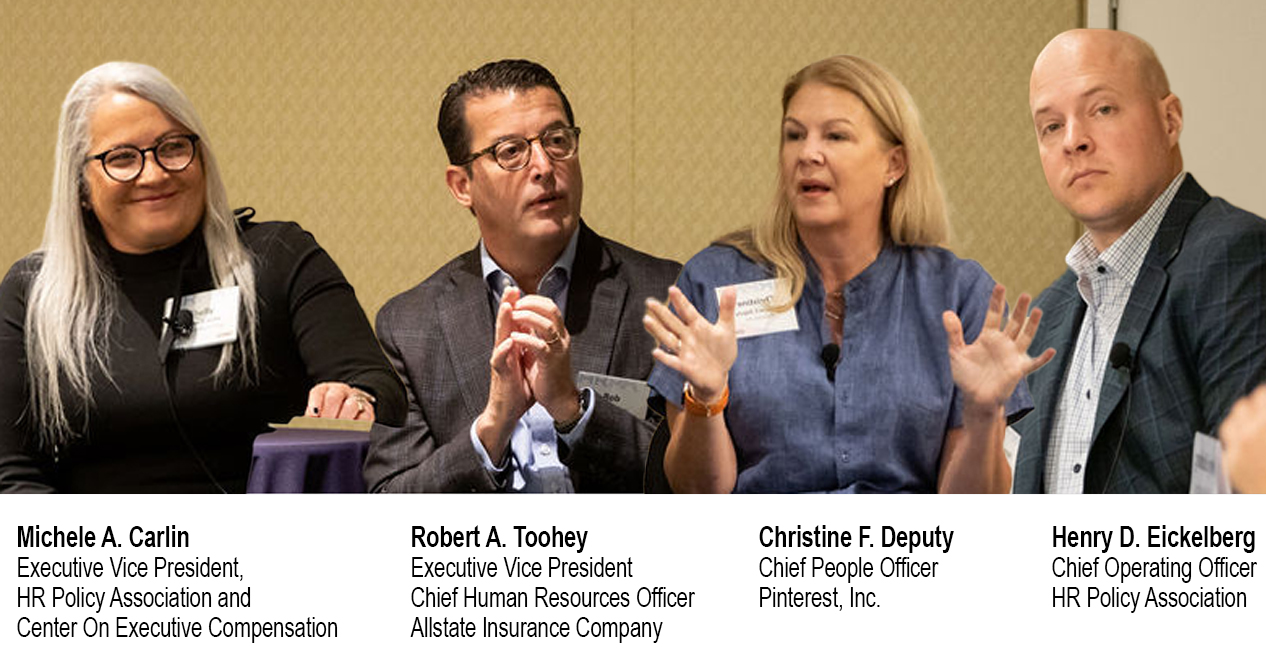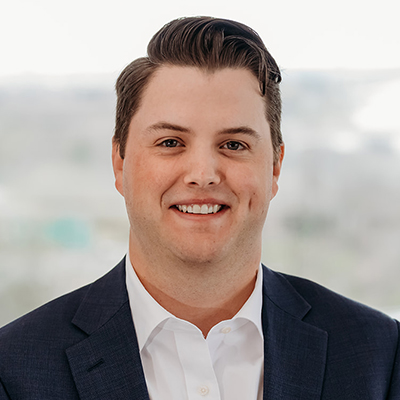In a concurrent breakout session, Henry Eickelberg and Michele Carlin of the HR Policy staff were joined by CHROs to discuss the ever-evolving workplace and the continued importance of bringing people together in an increasingly digital world.
“Remote work is here to stay:” Panelists discussed the staying power of remote work arrangements, noting that while remote work may decline in the short term, it will continue to increase over a longer period of time. Given this reality, panelists emphasized the importance of addressing the present gap in many companies between leadership and employee expectations regarding workplace flexibility.

“Let work drive the constructs:” Christine Deputy offered insights into Pinterest’s journey through navigating the flexible work landscape and accommodating both employee and management expectations in doing so. Ms. Deputy noted that allowing how work was actually done to shape how her company developed a flexible work structure gave the process needed direction. “Work is going to define the frequency [of how often teams meet in person].”
“Trust your employees to do the work they have to do, however they do it.” Panelists emphasized the importance of creating trust between management and employees when establishing a flexible work structure. “At the end of the day it’s work anywhere – we have to get rid of the remote and hybrid labels – don’t overcomplicate it,” noted Robert Toohey. Mr. Toohey shared his experiences in helping create new flexible work arrangements at Allstate, and emphasized that despite increased flexibility, it was still important to bring people together for meaningful purposes. Mr. Toohey noted that employees often enjoyed being together in person again, as long as they felt like they weren’t going to be required to resume being in the office five days a week.
Predictability and communication key: Panelists discussed the importance of providing employees predictability regarding when they were expected to come into the office and establishing regular work rhythms as a result. Constant and continuous communication with employees regarding expectations was also emphasized, as it builds reciprocal trust which serves as a foundation for any flexible work model.

Gregory Hoff
Assistant General Counsel, Director of Labor & Employment Law and Policy, HR Policy Association
Contact Gregory Hoff LinkedIn